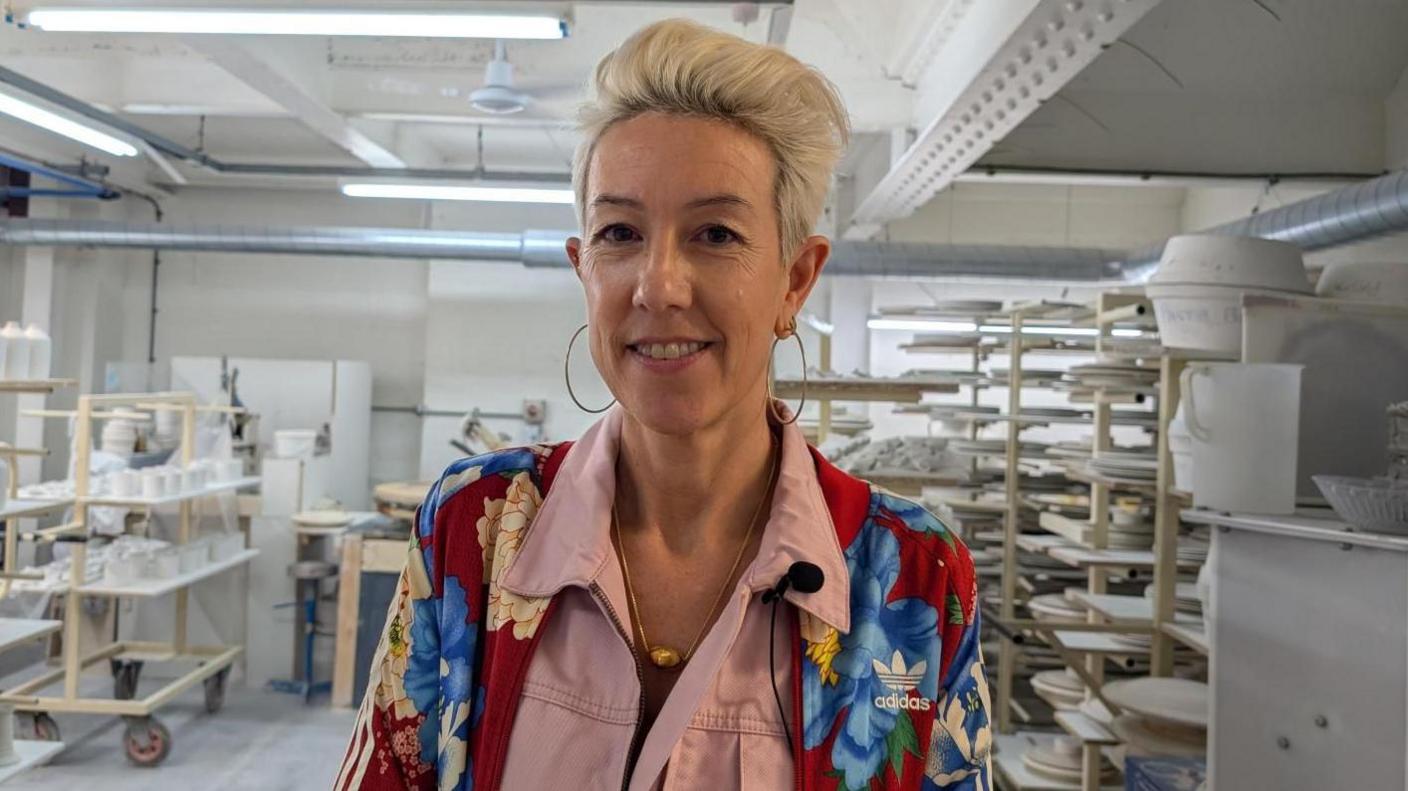Pottery industry still viable - Emma Bridgewater
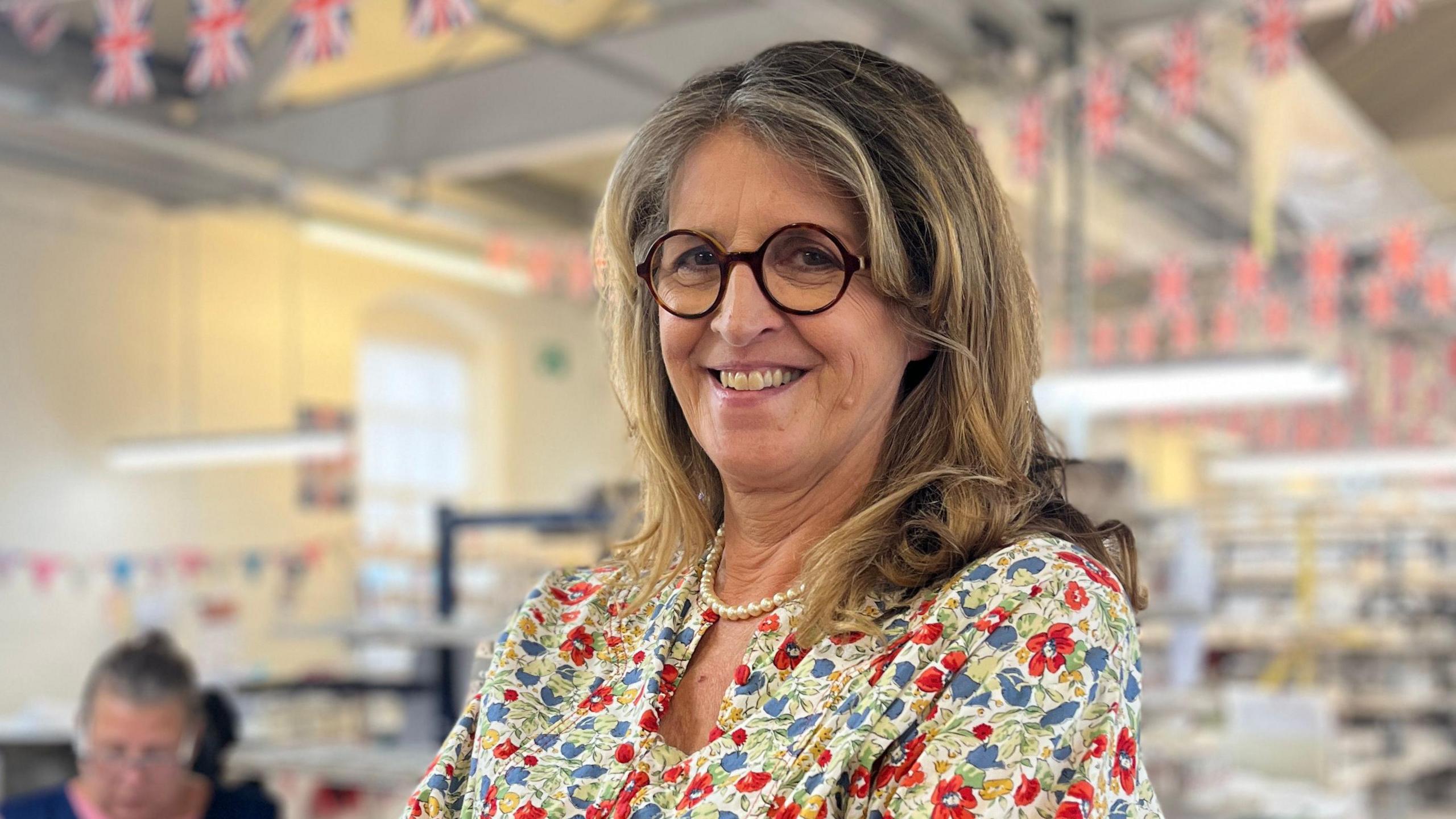
"We can't get to a stage where we can't make our own plates," said Emma Bridgewater
- Published
Emma Bridgewater, the eponymous Stoke-on-Trent pottery firm boss, has said she still sees a future for the industry despite recent cost pressures.
This year marks the 40th since Dame Emma's company began production, when she was still in her early 20s.
There had been "ups and downs" in the industry over the years, she said, citing recessions as well as a number of closures happening shortly before her firm launched.
More recently, bosses have been complaining a lack of support with energy bills as the pottery industry is heavily dependant on gas-powered kilns for its products.
"We can't get to a stage where we can't make our own plates in this country," she told BBC Midlands Today.
"We're unnecessarily scrabbling around to pay bills that shouldn't be this big, they're out of proportion."
Dame Emma added it was "crucial" that her products were made in the city, due to the skilled local workforce.
"It wouldn't have happened anywhere else," she said. "We have a highly evolved ceramics expertise here."
She added: "The community of Stoke matters enormously to me, it is integral to the health of the business so I've got to believe this is an industry with a future."
She conceded she did not have a solution to its current struggles, but felt the government ought to look to other countries to understand why bills are lower abroad.
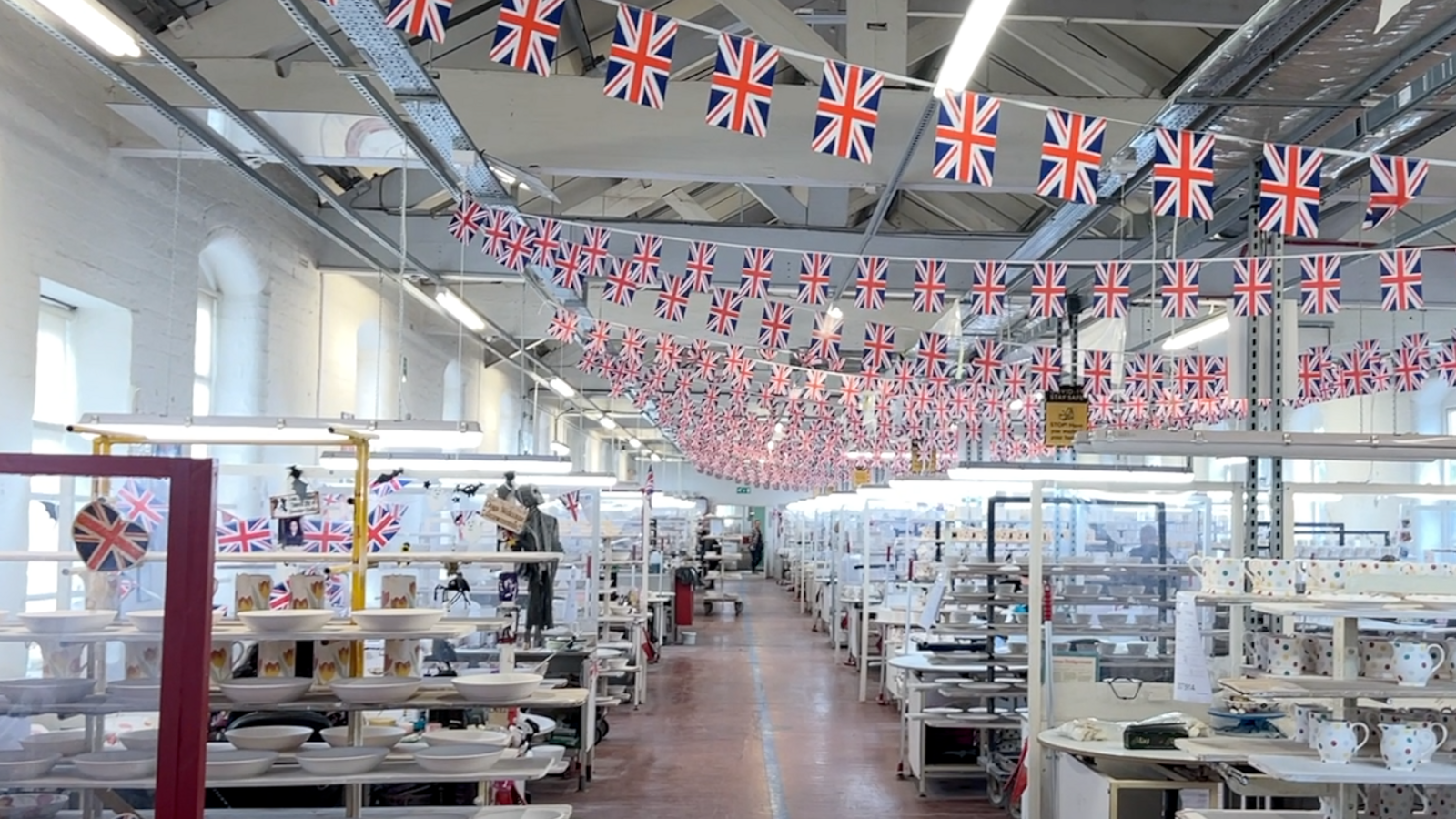
Dame Emma said the community in Stoke-on-Trent mattered enormously to her
Dame Emma added she wanted to invest more and train more young people, but this required growth.
"There isn't a sort of feeling of growth being possible, or wanting to be able to do the lovely things," she said.
Nevertheless, she said Stoke-on-Trent was a city that gave her "enormous faith in the future", despite all the "really hard knocks" suffered there.
"I knew when I first came here I wanted to make one of these factories come alive again and having done it, is an amazing feeling," she said.
"The minute I stepped off the train here I did have a strong sense that I was going to work here, and I had no interest whatsoever in going abroad, I never did."
She said although there were worries, there had been positive developments in the industry more recently.
The return of Cornishware, and Moorcroft being brought back into family ownership were among the bright spots, she said.
"We're definitely a viable industry," she said. "Yes, we're struggling at the moment."
She said she believed the fact the products were made and decorated by hand was integral to their value.
Get in touch
Tell us which stories we should cover in Staffordshire
Follow BBC Stoke & Staffordshire on BBC Sounds, Facebook, external, X, external and Instagram, external.
Related topics
- Published20 July 2023
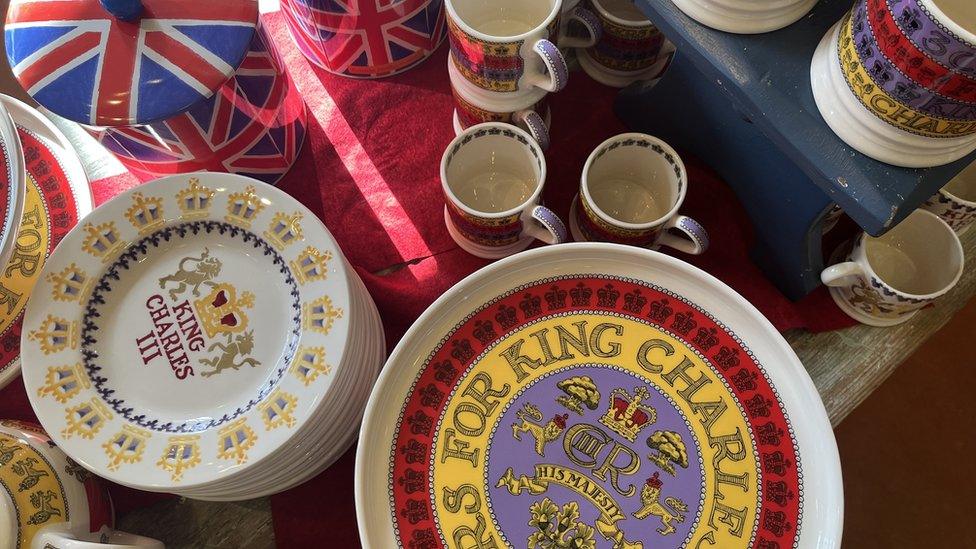
- Published29 June 2023
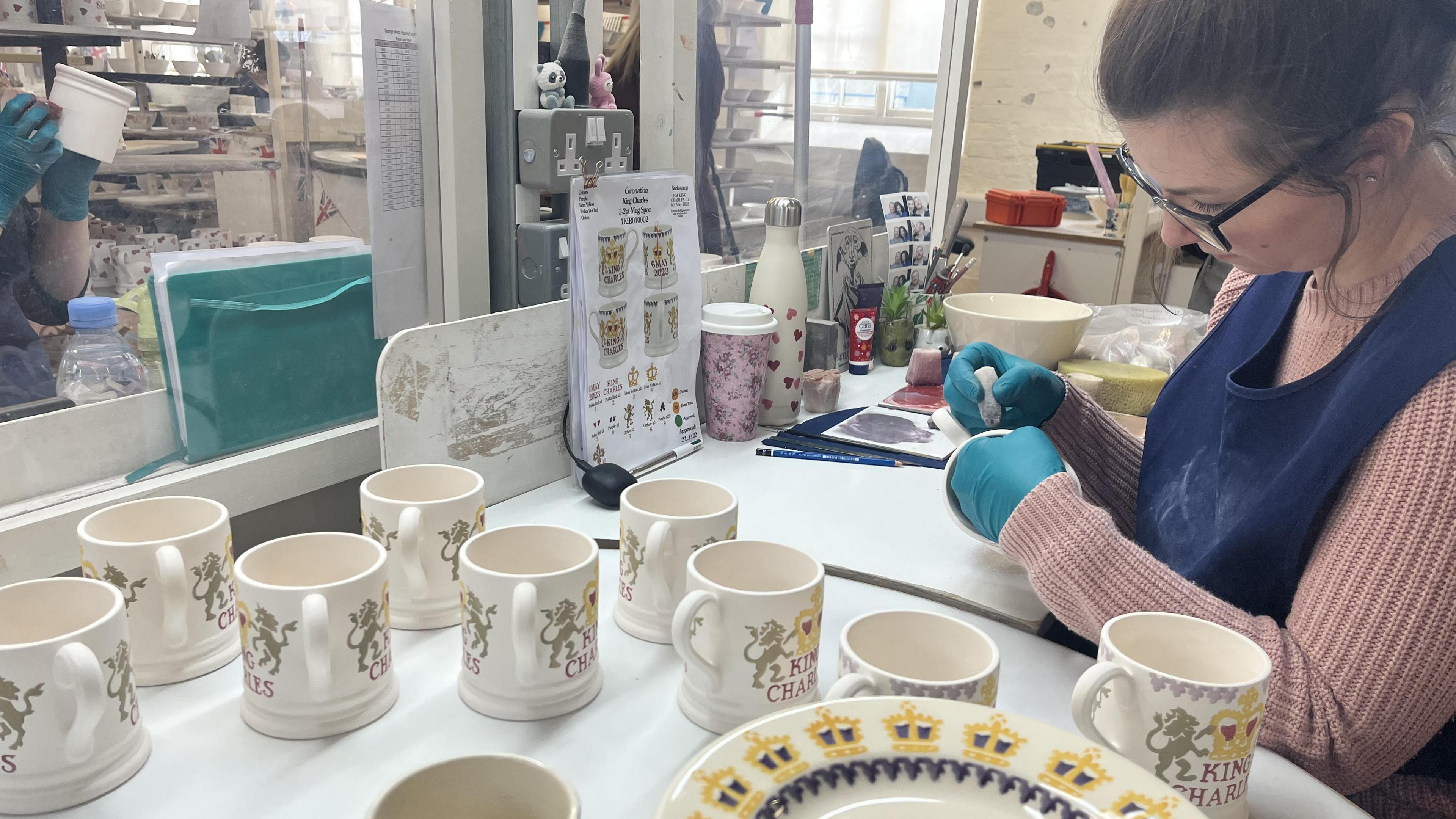
- Published14 June
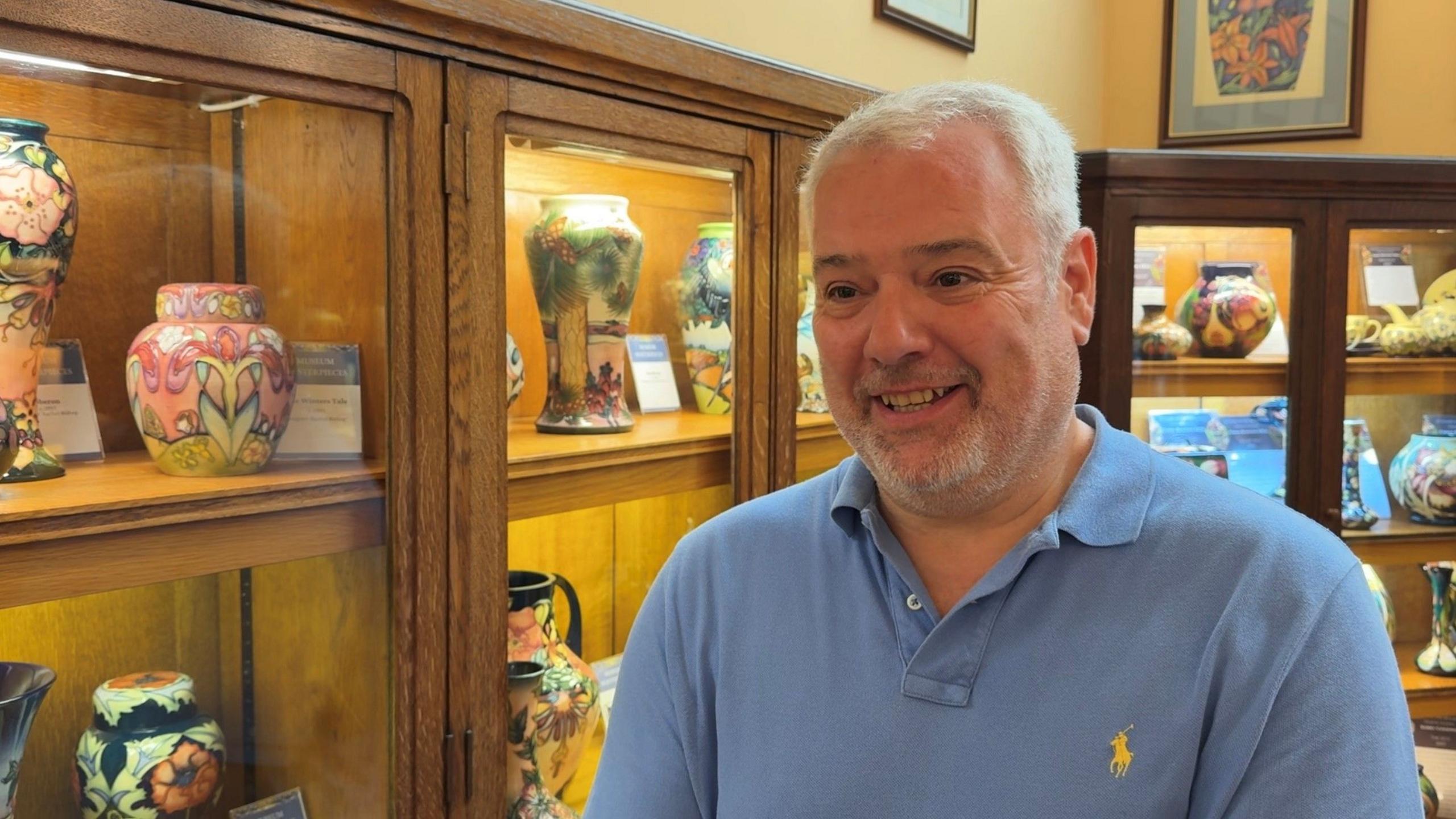
- Published8 June
